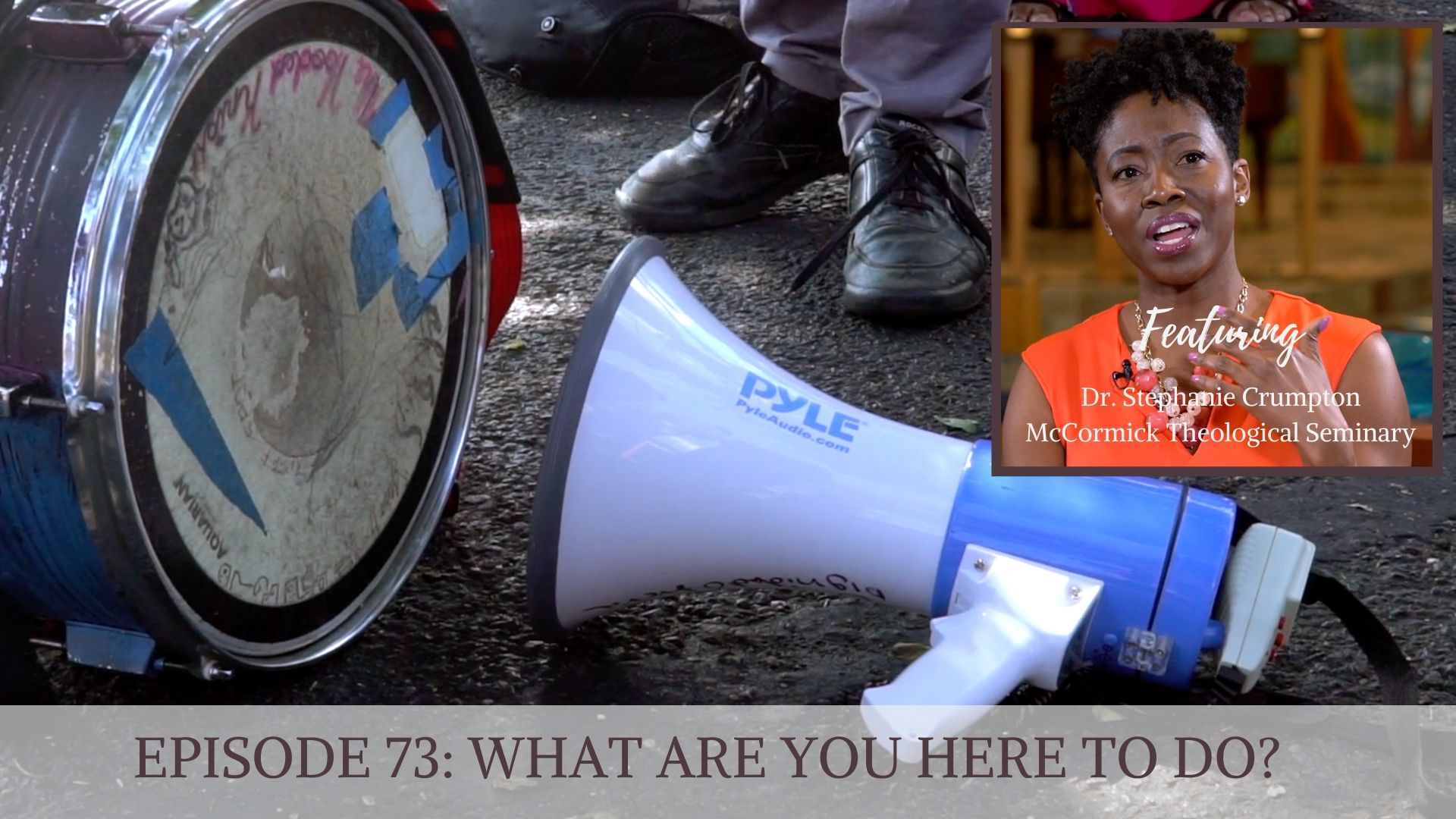Sometimes the word of the Lord comes. It might be while you’re doing the dishes.
It happened that way for Dr. Stephanie Crumpton. It was her first semester teaching at Lancaster Theological Seminary. It was 2014. Her new students were splitting their time between classes and protests in the streets.
Dr. Crumpton was asked to preach in chapel. And the country was reeling over the very public police violence that ended in the deaths of Michael Brown and Eric Garner. She did not want to preach…
Listen to Dr. Crumpton’s story about that pivotal moment, and what led her to write her forthcoming book Sanctuary: Care in the Movement for Black Life, due out in December 2020.
In the course of telling this story that led to her next book, Dr. Crumpton raises a host of important questions for all of us. The protests of 2014 were an induction of millennials into the fight for racial justice, as well as a new and deeply troubling brand of counter-protests that resisted the calls for justice. Ferguson and the season that followed in 2014-15 was the birth of the hashtag and movements #BlackLivesMatter and the Movement for Black Lives.
In 2020 we need to hear the questions that Dr. Crumpton asks:
- Who is a revolutionary?
- What is it to be in the fight for justice?
- What can you do?
- And, what are you here to do?
Friends, are you listening for a word from the Lord?
Dr. Stephanie Crumpton asks questions we all need to be asking right now:
What is it to be in the fight for justice?
What are YOU here to do? #3MMM #M4BL @McCormickSem @ecampbellreed https://t.co/67EKED8kEH pic.twitter.com/Jh1VbTA93M— Three Minute Ministry Mentor (@3MinuteMin) June 29, 2020
Gaining clarity about our gifts and purpose
Dr. Crumpton answered these questions for herself, by acknowledging her own gifts of preaching, teaching, writing and publishing. These are not only her gifts but also her calling. These are her contributions to the movement for Black lives.
She wrote her new book to support her students, and other minister-activists, as they find ways to care for themselves and sustain the work in the streets. The new book will also make space for the names and stories of Black people who have lost their lives to police brutality.
Finally, and perhaps of greatest importance, Dr. Crumpton is concerned for each of us to find our place in the movement. If you aim to do anti-racist work, and if you want to make the impact on your family, community, church, government policies and laws, then begin by responding to the questions she asks.
When we are in a crisis moment like the present one, it is hard to pause and ask ourselves, what is my purpose? and let that guide the actions and roles we take. Yet this is our work.
How can you be clear about your purpose, which then informs the role that you play?
~Dr. Stephanie Crumpton
How will you get clear about your purpose in this 2020 uprising? How will you support the changes that need to come?
If you are a white person and you are still thinking, Well, I’ll do what I can but it is not really my work, perhaps you need to cultivate a deeper empathy? Or maybe you need to consider how your internal response is one of fragility?
Although Black people are suffering losses at every turn, and they are calling us to all to anti-racist work, it is truly white people who need to do the work: 1) recognizing our part in racism, 2) breaking it down and owning how we have participated benefitted, and 3) reconstructing new anti-racist beliefs and behaviors to support Black lives. Is this your purpose? Let’s hold one another accountable, and listen for a word from God…




